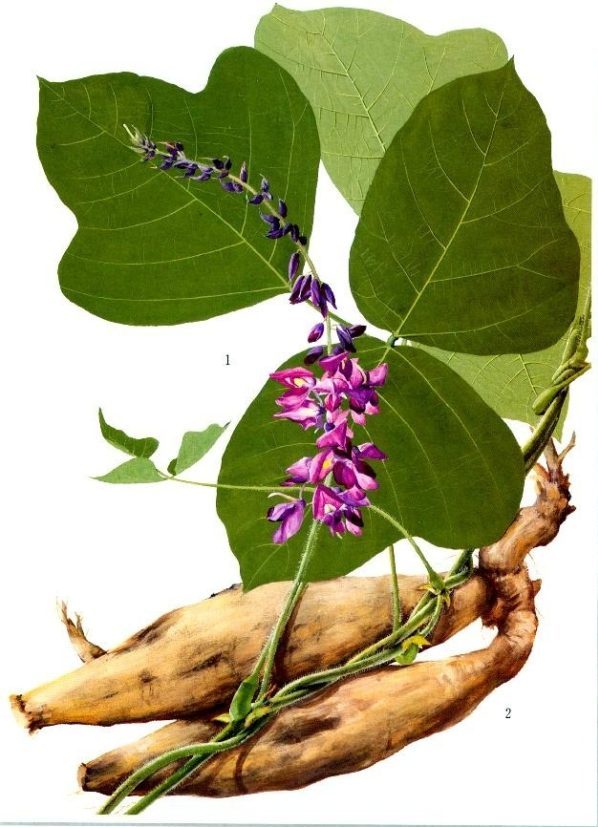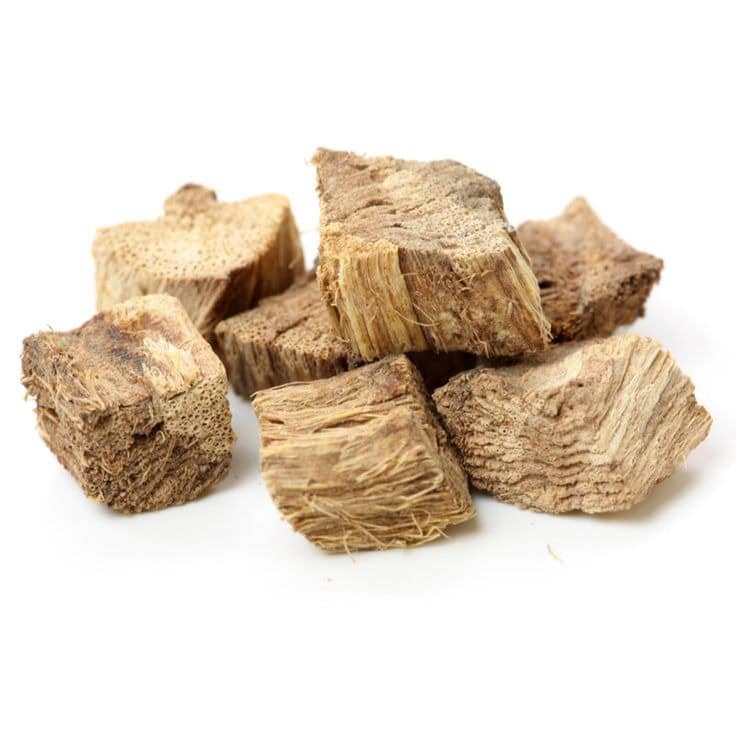Kudzu Root (Pueraria lobata), often called Japanese arrowroot, is a climbing vine native to East Asia. For over 2,000 years, traditional Chinese medicine has embraced this plant for treating ailments like fevers, diarrhea, and heart health.
This root isn’t just a curiosity from herbal medicine, it’s a nutritional and therapeutic marvel.
Packed with isoflavones, antioxidants, and essential nutrients, kudzu root is making waves for its potential to support liver health, ease menopausal symptoms, and even help with alcohol dependence.
#1. May Help Curb Alcohol Dependence
Kudzu root’s isoflavones, especially puerarin, are linked to reduced alcohol consumption.
Research published in the Journal of Addiction Medicine revealed that participants consuming kudzu extract cut their weekly alcohol intake by 34–57%.
Moreover, another study found that consuming puerarin before drinking slowed alcohol consumption, suggesting kudzu may aid in preventing binge drinking.

#2. Supports Liver Health
Kudzu root is packed with antioxidants like puerarin that protect liver cells from oxidative stress.
According to a study in Oxidative Medicine and Cellular Longevity, puerarin reduced alcohol-induced liver damage in mice by neutralizing harmful free radicals.
In addition, kudzu promotes natural detoxification, which helps maintain overall liver health. Regular consumption of kudzu tea may offer gentle, herbal support for your liver’s well-being.

#3. Alleviates Menopausal Symptoms
Kudzu root contains phytoestrogens, plant compounds that mimic estrogen in the body. These compounds can ease common menopausal symptoms like hot flashes and night sweats.
A small study published in Maturitas showed significant improvements in menopausal symptoms after taking Pueraria Mirifica, a species of kudzu, for 12 weeks.
If you’re navigating menopause, adding kudzu root to your routine could bring natural relief while also supporting hormonal balance.

#4. Promotes Heart Health
Kudzu root’s isoflavones have been shown to reduce LDL (bad cholesterol) levels and improve circulation.
Moreover, its potassium content helps regulate blood pressure, lowering the risk of heart disease.
A study in the American Journal of Chinese Medicine found that kudzu extract reduced oxidative stress in the heart, supporting cardiovascular health.

#5. Reduces Inflammation
Kudzu root is rich in anti-inflammatory compounds like isoorientin, which help manage chronic inflammation and reduce symptoms of arthritis and other inflammatory conditions.
In an animal study, isoorientin from kudzu decreased swelling and inflammation markers in mice with induced joint pain.
Kudzu might be a natural way to find relief for anyone struggling with inflammation.

#6. Relieves Cluster Headaches
Traditional medicine has long relied on kudzu root for headaches, and modern research is starting to validate this use.
A case study published in Cephalalgia found that kudzu reduced the intensity, frequency, and duration of cluster headaches in 69% of participants.
Including kudzu in your wellness routine could be a game-changer for managing chronic headaches.

#7. Aids Digestive Health
Kudzu root’s fiber content helps promote gut motility and prevent constipation.
Additionally, it supports the growth of beneficial gut bacteria, improving overall digestive health.
Whether in tea or powder form, you can rely on kudzu root to maintain a healthy digestive system and enhance nutrient absorption.
#8. Enhances Cognitive Function
The antioxidants in kudzu root, particularly puerarin, protect brain cells from oxidative stress, which can impair cognitive performance.
Preliminary studies suggest that kudzu extract may enhance memory and learning capabilities.
Including kudzu in your diet might help support long-term brain health and improve focus naturally.

How to Use Kudzu Root
- Herbal tea: Simmer 1–2 teaspoons of dried root in water for a soothing tea.
- Powdered form: Use kudzu starch as a thickener in soups, sauces, and batters.
- Smoothies: Blend powdered root with fruits for a nutrient-packed smoothie.
- Cooking: Use fresh kudzu root slices as you would potatoes or other tubers in soups or stews.
- Topical application: Apply a poultice made from powdered kudzu root to reduce inflammation or soothe headaches.

Cautions and Precautions
Kudzu root may interact with medications, including blood thinners and hormonal therapies, potentially reducing their effectiveness.
While moderate consumption can support liver health, excessive intake has been linked to rare cases of liver toxicity.
Moreover, there is limited research on its safety during pregnancy and breastfeeding, so it’s best to avoid use unless recommended by your doctor.
Disclaimer
This article is for informational purposes only and not a substitute for professional medical advice.
Always consult your healthcare provider before adding kudzu root to your routine, especially if you have existing medical conditions or take medications.







